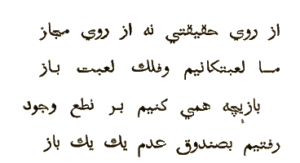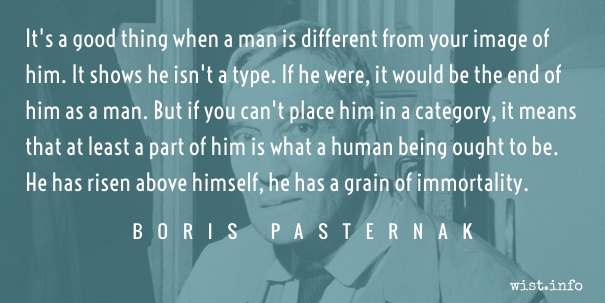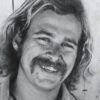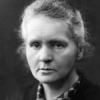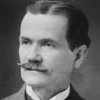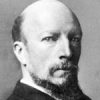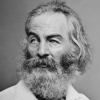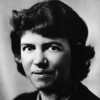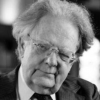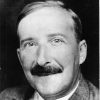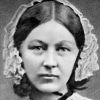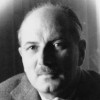It is so hard for us little human beings to accept this deal that we get. It’s really crazy, isn’t it? We get to live, then we have to die. What we put into every moment is all we have.
Quotations about:
meaning of life
Note not all quotations have been tagged, so Search may find additional quotes on this topic.
By some happy fortuity, man is a projector, a designer, a builder, a craftsman; it is among his most dependable joys to impose upon the flux that passes before him some mark of himself, aware though he always must be of the odds against him. His reward is not so much in the work as in its making; not so much in the prize as in the race. We may win when we lose, if we have done what we can; for by so doing we have made real at least some part of that finished product in whose fabrication we are most concerned: ourselves.
Learned Hand (1872-1961) American jurist
Speech (1955-01-29), “A Fanfare for Prometheus,” American Jewish Committee annual dinner, New York City
(Source)
‘Tis all a Chequer-board of Nights and Days
Where Destiny with Men for Pieces plays:
Hither and thither moves, and mates, and slays,
And one by one back in the Closet lays.
Omar Khayyám (1048-1123) Persian poet, mathematician, philosopher, astronomer [عمر خیام]
Rubáiyát [رباعیات], Bod. # 94 [tr. FitzGerald, 1st ed. (1859), # 49]
(Source)
Alternate translations:
In the view of reality, not of illusion,
We mortals are chess-men and fate is the player;
We each act our game on the board of life,
And then one by one are swept into the box!
[tr. Cowell (1858), # 27]
Impotent Pieces of the Game He plays
Upon this Chequer-board of Nights and Days;
Hither and thither moves, and checks, and slays;
And one by one back in the Closet lays.
[tr. FitzGerald, 2nd ed. (1868), # 74, and 3rd ed. (1872) # 69]
But helpless Pieces of the Game He plays
Upon this Chequer-board of Nights and Days;
Hither and thither moves, and checks, and slays,
And one by one back in the Closet lays.
[tr. FitzGerald, 4th ed. (1879), # 49, and 5th ed. (1889), # 49]
Here, below, we are naught but puppets tor the diversion of the wheel of the heavens. This is indeed a truth, and no simile. We truly are but pieces on this chessboard of humanity, which in the end we leave, only to enter, one by one, into the grave of nothingness.
[tr. McCarthy (1879), # 61]
We are but chessmen, who to move are fain,
Just as the great Chessplayer doth ordain.
It moves us on life's chess-board to and fro,
And then in death's box shuts us up again.
[tr. Whinfield (1882), # 148]
We are but chessmen, destined, it is plain,
That great chess player, Heaven, to entertain;
It moves us on life's chess-board to and fro,
And then in death's box shuts up again.
[tr. Whinfield (1883), # 270]
We are all Puppets of the Sky, we run
As wills the Player till the Game is done,
And when The Player wearies of the Sport,
He throws us into Darkness One by One.
[tr. Garner (1887), 4.2]
But puppets are we in Fate's puppet-show --
No figure of speech is this, but in truth 't is so!
On the draughtboard of Life we are shuffled to and fro,
Then one by one to the box of Nothing go!
[tr. M. K. (1888)]
HERE, BELOW, WE ARE NAUGHT BUT
PUPPETS FOR THE DIVERSION OF THE
WHEEL OF THE HEAVENS. THIS IS
INDEED A TRUTH, AND NO SIMILE.
WE TRULY ARE BUT PIECES ON
THIS CHESSBOARD OF HUMANITY,
WHICH IN THE END WE LEAVE, ONLY
TO ENTER, ONE BY ONE, INTO THE
GRAVE OF NOTHINGNESS.
[tr. McCarthy (1889)]
Upon this checkerboard of joys and woes
The wretched puppet hither and thither goes,
Until the mighty Player of the skies
His plaything back in the casket throws.
[tr. Garner (1898), # 82]
We're the pieces Heaven moves on the chessboard of space
(No metaphor this, but the truth of the case);
Each awhile on Life's board plays his game and returns
In the box of nonentity back to his place.
[tr. Payne (1898), # 480]
To speak plain language, and not in parables,
we are the pieces and heaven plays the game,
we are played together in a baby-game upon the chessboard of existence,
and one by one we return to the box of non-existence.
[tr. Heron-Allen (1898), # 94]
'Tis not a fancy of disordered brains
But certain truth, that on life's checkered square
We men are puppets, whose steps God ordains;
The time is short in which we dally there,
Then in death's casket one by one we fall,
The game is played and earth must cover all.
[tr. Cadell (1899), # 108]
Like helpless chessmen on the checkered blocks,
We 're hither, thither moved, till Heaven knocks
The luckless pieces from the crowded board,
And one by one returns them to the box.
[tr. Roe (1906), # 53]
In truth and not by way of simile.
Heaven plays the game and its mere puppets we;
In sport moved on Life's chess-board, one by one
We reach the chess-box of Nonentity!
[tr. Thompson (1906), # 317]
To speak plain language, parable to shame,
We are the pieces, Heaven plays the game:
A childish game upon the board of Life,
Then back into the Box from whence we came.
[tr. Talbot (1908), # 94]
To speak the truth and not as a metaphor, we are
the pieces of the game and Heaven the player.
We play a little game on the chessboard of existence.
Then we go back to the box of non-existence, one by one.
[tr. Christensen (1927), # 6]
This is not an allegory, it is reality:
We are the figures and the Sphere is the player.
We act a play on the boards of existence
And we go back into the box of non-existence one by one.
[tr. Rosen (1928), # 168]
We puppets dance to tunes of Time we know,
We are puppets in fact, and not for show;
Existence is the carpet where we dance,
So one by one where aught is naught we go.
[tr. Tirtha (1941), # 2.6]
Let me speak out, unallegorically:
We are mere puppets of our Master, toys.
On the Table of Existence, one by one.
Flung back in the toy box of Non-existence.
[tr. Graves & Ali-Shah (1967), # 73]
We are but chessmen in God’s scheme of things:
The most are merely pawns, a few are kings;
And when our unimportant game is done
Back in the box we tumble one by one.
[tr. Bowen (1976), # 44]
We are the puppets and fate the puppeteer
This is not a metaphor, but a truth sincere
On this stage, fate for sometime our moves steer
Into the chest of non-existence, one by one disappear.
[tr. Shahriari (1998), literal]
The hands of fate play our game
We the players are given a name
Some are tame, others gain fame
Yet in the end, we’re all the same.
[tr. Shahriari (1998), figurative]
It’s a good thing when a man is different from your image of him. It shows he isn’t a type. If he were, it would be the end of him as a man. But if you can’t place him in a category, it means that at least a part of him is what a human being ought to be. He has risen above himself, he has a grain of immortality.
Boris Pasternak (1890-1960) Russian poet, novelist, and literary translator
Doctor Zhivago [До́ктор Жива́го], Part 2, ch. 9 “Varykino,” sec. 4 [Yuri] (1955) [tr. Hayward & Harari (1958), US ed.]
(Source)
Alternate translations:
It’s a good thing when a man is different from your image of him. It shows he isn’t a type. If he were, it would be the end of him as a man. But if you can’t place him in a category, it means that at least a part of him is what a human being ought to be. He has a grain of immortality.
[tr. Hayward & Harari (1958), UK ed.]
It’s good when a man deceives your expectations, when he doesn’t correspond to the preconceived notion of him. To belong to a type is the end of a man, his condemnation. If he doesn’t fall under any category, if he’s not representative, half of what’s demanded of him is there. He’s free of himself, he has achieved a grain of immortality.
[tr. Pevear & Volokhonsky (2010)]
But not only creativeness and enjoyment are meaningful. If there is a meaning in life at all, then there must be a meaning in suffering. Suffering is an ineradicable part of life, even as fate and death. Without suffering and death human life cannot be complete.
Viktor Frankl (1905-1997) German-American psychologist, writer
Man’s Search for Meaning [Trotzdem Ja zum Leben Sagen], Part 1 (1946) [tr. Lasch (1959)]
(Source)
Life is like arriving late for a movie, having to figure out what was going on without bothering everybody with a lot of questions, and then being unexpectedly called away before you find out how it ends.
Joseph Campbell (1904-1987) American writer, professor of literature
(Attributed)
Life is much more manageable when thought of as a scavenger hunt as opposed to a surprise party.
Jimmy Buffett (1946-2023) American musician and singer-songwriter [James William Buffett]
A Pirate Looks at Fifty, Sec. 11 “The Islands” (1998)
(Source)
Sorrow is knowledge: they who know the most
Must mourn the deepest o’er the fatal truth,
The Tree of Knowledge is not that of Life.George Gordon, Lord Byron (1788-1824) English poet
“Manfred,” Act 1, sc. 1 [Manfred] (1817)
(Source)
And Man in portions can foresee
His own funereal destiny;
His wretchedness, and his resistance,
And his sad unallied existence:
To which his Spirit may oppose
Itself — and equal to all woes,
And a firm will, and a deep sense,
Which even in torture can decry
Its own concenter’d recompense,
Triumphant where it dares defy,
And making Death a Victory.
Give, give, give — what is the point of having experience, knowledge, or talent if I don’t give it away? Of having stories if I don’t tell them to others? Of having wealth if I don’t share it? I don’t intend to be cremated with any of it! It is in giving that I connect with others, with the world, and with the divine.
Isabel Allende (b. 1942) Chilean-American writer
“In Giving I Connect with Others,” This I Believe series, All Things Considered, NPR (2005-04-04)
(Source)
Written as a tribute to her daughter, Paula, who died in December 1992.
For what do we live, but to make sport for our neighbors and laugh at them in our turn?
When you live with a joyful sense of purpose, when you infuse your life with a greater purpose beyond your individual self, every aspect of your karma can become a brilliant facet of your mission. You can transform sorrow and adversity of any sort into joy, stability, health, and prosperity. By changing poison into medicine and accomplishing your inner revolution, you can use every experience of karma to encourage others who suffer from the same problems that you overcame.
You can become an ambassador of hope, an essential and radiant treasure of humanity, in which you recognize that all who have ever lived are members of your extended family.
As you continue to spread light in this way, actively doing good in the world, that energy will come back to you in abundant positivity. When you refuse to perpetuate any bad that has been done to you, you can free yourself from the chains of negativity.
Tina Turner (1939-2023) American singer, songwriter, actress [b. Anna Mae Bullock]
Happiness Becomes You, ch. 8 (2020)
(Source)
It seems that life is not easy for any of us. But what of that? We must have perseverance and above all confidence in ourselves. We must believe that we are gifted for something, and that this thing, at whatever cost, must be attained.
[La vie n’est facile pour aucun de nous. Mais quoi, il faut avoir de la persévérance, et surtout de la confiance en soi. Il faut croire que l’on est doué pour quelque chose, et que, cette chose, il faut l’atteindre coûte que coûte.]
Marie Curie (1867-1934) Polish-French physicist and chemist [b. Maria Salomea Skłodowska]
Letter to her brother Joseph (1894-03-18)
(Source)
(French (Source))
As quoted in Eve Curie Labouisse, Madame Curie: A Biography, ch. 9 (1937) [tr. Sheean (1938)].
Consider what you came from: you are Greeks!
You were not born to live like mindless brutes
but to follow paths of excellence and knowledge.[Considerate la vostra semenza:
fatti non foste a viver come bruti,
ma per seguir virtute e canoscenza.]Dante Alighieri (1265-1321) Italian poet
The Divine Comedy [Divina Commedia], Book 1 “Inferno,” Canto 26, l. 118ff (26.118-120) [Ulysses] (1309) [tr. Musa (1971)]
(Source)
Speaking to his sailors on their final voyage, urging them to explore the unknown.
(Source (Italian)). Alternate translations:
On your original reflect, nor think
That you were, made, like Brutes, to only live,
But knowledge and to virtuous acts pursue.
[tr. Rogers (1782)]
Recall your glorious toils, your lofty birth.
Nor like the grov'ling herds, ally'd to earth.
No base despondence quit your lofty claim.
[tr. Boyd (1802), st. 19]
Call to mind from whence we sprang:
Ye were not form’d to live the life of brutes
But virtue to pursue and knowledge high.
[tr. Cary (1814)]
Bethink you of your birth-rank and its dues:
Ye were not thus for brutish life endued.
But Virtue's path and Learning's born to chuse.
[tr. Dayman (1843)]
Consider your origin: ye were not formed to live like brutes, but to follow virtue and knowledge.
[tr. Carlyle (1849)]
Consider, then, the birth from whence you sprung:
You were not made, like brutes, to live and die:
The path of virtue and of knowledge try.
[tr. Bannerman (1850)]
Consider well the seed from whence you sprung;
You were not made to live as live the beasts,
But to seek virtue and true knowledge grasp.
[tr. Johnston (1867)]
Consider ye the seed from which ye sprang;
Ye were not made to live like unto brutes,
But for pursuit of virtue and of knowledge.
[tr. Longfellow (1867)]
Consider your begetting; ye were not made to live as brutes, but to follow virtue and knowledge.
[tr. Butler (1885)]
Over your noble birthright ye should muse;
To live like senseless brutes ye were not made,
But knowledge to pursue and virtue use.
[tr. Minchin (1885)]
Consider ye your origin; ye were not made to live as brutes, but for pursuit of virtue and of knowledge.
[tr. Norton (1892)]
Bethink you of your birth: ye were not made to live the life of brutes, but to obey the call of valour and of knowledge.
[tr. Sullivan (1893)]
Consider ye the seed that ye are sprung from:
Ye were not made to live as the brute creatures,
But that ye virtue might pursue and knowledge.
[tr. Griffith (1908)]
Take thought of the seed from which you spring. You were not born to live as brutes, but to follow virtue and knowledge.
[tr. Sinclair (1939)]
Think on the seed ye spring from! Ye were made
Not to live life of brute beasts of the field
But follow virtue and knowledge unafraid.
[tr. Binyon (1943)]
Think of your breed; for brutish ignorance
Your mettle was not made; you were made men.
To follow after knowledge and excellence.
[tr. Sayers (1949)]
Greeks! You were not born to live like brutes,
but to press on toward manhood and recognition!
[tr. Ciardi (1954), l. 110]
Consider your origin: you were not made to live as brutes, but to pursue virtue and knowledge.
[tr. Singleton (1970)]
Consider well the seed that gave you birth:
you were not made to live your lives as brutes,
but to be followers of worth and knowledge.
[tr. Mandelbaum (1980)]
Consider then the race from which you have sprung:
You were not made to live like animals,
But to pursue virtue and know the world.
[tr. Sisson (1981)]
Consider well your seed:
You were not born to live as a mere brute does,
But for the pursuit of knowledge and the good.
[tr. Pinsky (1994)]
Consider your sowing: you were not made to live like brutes, but to follow virtue and knowledge.
[tr. Durling (1996)]
Consider your origin: you were not made to live like brutes, but to follow virtue and knowledge.
[tr. Kline (2002)]
Hold clear in thought your seed and origin.
You were not made to live as mindless brutes,
but go in search of virtue and true knowledge.
[tr. Kirkpatrick (2006)]
Consider how your souls were sown:
you were not made to live like brutes or beasts,
but to pursue virtue and knowledge.
[tr. Hollander/Hollander (2007)]
Think of your origins, the people you come from:
You were not made to live like wild-toothed beasts,
But for the pursuit of virtue and honest knowledge.
[tr. Raffel (2010)]
Remember now your pedigree.
You were not born to live as brutes. Virtue
And knowledge are your guiding lights.
[tr. James (2013)]
Come to think of it, I don’t know that love has a point, which is what makes it so glorious. Sex has a point, in terms of relief and, sometimes, procreation, but love, like all art, as Oscar said, is quite useless. It is the useless things that make life worth living and that make life dangerous too: wine, love, art, beauty. Without them life is safe, but not worth bothering with.
Stephen Fry (b. 1957) British actor, writer, comedian
Moab Is My Washpot, “Falling In,” ch. 6 (1997)
(Source)
Referencing Oscar Wilde from the preface of The Picture of Dorian Gray (1890): "All art is quite useless".
As for understanding the ways of Providence, I gave up trying, long ago. I see no way of solving the mysteries of this strange existence, except by regarding it as preparatory to another; and even with that explanation, the fate of some individuals remains an inexplicable riddle.
Lydia Maria Child (1802-1880) American abolitionist, activist, journalist, suffragist
Letter to Harriet Seward (1869)
(Source)
If you keep your eyes so fixed on Heaven that you never look at the Earth, you will stumble into Hell.
Austin O'Malley (1858-1932) American ophthalmologist, professor of literature, aphorist
Keystones of Thought (1914)
(Source)
Reading those turgid philosophers here in these remote stone buildings may not get you a job, but if those books have forced you to ask yourself questions about what makes life truthful, purposeful, meaningful, and redeeming, you have the Swiss Army Knife of mental tools, and it’s going to come in handy all the time.
Bill Watterson (b. 1958) American cartoonist
Commencement Address, Kenyon College (1990-05-20)
(Source)
“Here is where you can’t afford to be lazy,”
My Master said. “Lying in feather beds,
Or under quilts, no one conquers fame,
Without which, once your earthly life is dead,
The only traces you leave behind you are smoke
Blown in the air or bubbles breaking in water.[“Omai convien che tu così ti spoltre”,
disse ’l maestro; “ché, seggendo in piuma,
in fama non si vien, né sotto coltre;
sanza la qual chi sua vita consuma,
cotal vestigio in terra di sé lascia,
qual fummo in aere e in acqua la schiuma.”]Dante Alighieri (1265-1321) Italian poet
The Divine Comedy [Divina Commedia], Book 1 “Inferno,” Canto 24, l. 46ff (24.46-51) [Virgil] (1309) [tr. Raffel (2010)]
(Source)
The analogy of life to smoke and foam have been noted by commentators as resembling similar metaphors in Wisdom 2:1-4 and 5:14 and the Aeneid 5.740.
Virgil's urging of Dante to continue on out of a desire for fame, rather than to learn how to be saved or to come closer to God, have only recently been interpreted as an intentional showing that the poet/guide is not perfect -- another reason, beyond being only a virtuous pagan, that he cannot complete the journey with Dante to Paradise. (See here for more commentary on this.)
(Source (Italian)). Alternate translations:
It now is proper, said my Lord, that you
Should from this bed of yours arise; for they
Ne'er Fame acquire who spend their lives in down:
He who, without pursuing her, consumes
His time, leaves himself such tracts behind,
As Froth in Water, or as Smoke in Air.
[tr. Rogers (1782), ll. 44-49]
Arise! -- In vain the slumb'ring soul aspires,
(Her powers betray'd by sloth, extinct her fires)
In vain she tries the dazzling heights of fame:
As morning fogs disperse to meet no more,
As the waves close behind the lab'ring oar,
The dastard soul expires without a name!
[tr. Boyd (1802), st. 9]
“Now needs thy best of man;” so spake my guide:
“For not on downy plumes, nor under shade
Of canopy reposing, fame is won,
Without which whosoe’er consumes his days
Leaveth such vestige of himself on earth,
As smoke in air or foam upon the wave."
[tr. Cary (1814)]
"Rouse thee," my master urged, "'tis time to throw
This lethargy aside; who dozing lies
'Tween coverlet and feathers, ne'er shall know
Renown, and without her who wastes and dies,
Leaves of himself like trace on earth behind,
As foam on wave, or vapour on the skies."
[tr. Dayman (1843)]
"Now it behooves thee thus to free thyself from sloth," said the Master: "for sitting on down, or under coverlet, man come not into fame;
without which whoso consumes his his life, leaves such vestige of himself on earth, as smoke in air or foam in water."
[tr. Carlyle (1849)]
"Henceforth you must abandon indolence,"
My master said: "'tis not repose on plumes
That leads to fame -- nor yet in shady glooms;
Without the which if one consumes his life,
E'en such a vestige upon the earth he'll make
As smoke in air, or foam on water's track."
[tr. Bannerman (1850)]
"Now it befits thee to shake off this sloth,"
The Master said, "for resting upon down,
And under quilts is not the way to fame;
And without this he who his life consumes,
Leaves of himself on earth no better trace,
Than smoke in air or on the water foam."
[tr. Johnston (1867)]
"Now it behoves thee thus to put off sloth,"
My Master said; "for sitting upon down,
Or under quilt, one cometh not to fame,
Without which whoso his life consumes
Such vestige leaveth of himself on earth,
As smoke in air or in the water foam."
[tr. Longfellow (1867)]
"Henceforward it behoves that thou brace thyself thus," said the Master; "for not by sitting on feathers does one come into fame, nor under quilts; without the which whoso consumes his life leaves such trace on earth of himself as smoke in air or its froth on water."
[tr. Butler (1885)]
"Henceforth 'tis fitting thou shouldst shake off sloth,"
The master cried, "since idly lapt in down
'Neath coverlets, for him Fame never groweth.
Who so his life consumes without renown.
Leaves such a vestige of himself on earth,
As it were froth on air or water blown."
[tr. Minchin (1885)]
“Now it behoves thee thus to put off sloth,” said the Master, “for, sitting upon down or under quilt, one attains not fame, without which he who consumes his life leaves of himself such trace on earth as smoke in air, or in water the foam."
[tr. Norton (1892)]
"'Tis thus that thou must now shake thyself free from sloth," my Master said, "for seated on down, or under coverlet, man cometh not to fame; unattended by which whoso doth spend his days, leaveth such traces of himself on earth, as smoke in air or foam on water."
[tr. Sullivan (1893)]
"Thus must thou ever shake off sloth henceforward;"
The Master said, " for sitting upon feathers
Man cometh not to fame, nor under quilting;
Which lacking, whosoe'er consumes his life-time
Leaves of himself on earth just such a vestige
As smoke doth leave in air, and foam in water."
[tr. Griffith (1908)]
"Now must thou thus cast off all sloth," said the Master "for sitting on down or under blankets none comes to fame, and without it he that consumes his life leaves such trace of himself on earth as smoke in air or foam on water."
[tr. Sinclair (1939)]
"Now it behoveth lassitude to leave,"
The Master said, "for softly on down reclined
Or under coverlet, none can fame achieve,
Without which he who dallieth leaves behind
Such vestige of himself on earth imprest
As foam in water or smoke upon the wind."
[tr. Binyon (1943)]
"Put off this sloth," the master said, "for shame!
Sitting on feather-pillows, lying reclined
Beneath the blanket is no way to fame --
Fame, without which man's life wastes out of mind,
Leaving on earth no more memorial
Than foam in water or smoke upon the wind."
[tr. Sayers (1949)]
"Up on your feet! This is no time to tire!"
my Master cried. "The man who lies asleep
will never waken fame, and his desire
and all his life drift past him like a dream,
and the traces of his memory fade from time
like smoke in the air, or ripples on a stream."
[tr. Ciardi (1954)]
“Now it behooves you thus to cast off sloth,” said my master, “for sitting on down or under coverlet, no one comes to fame, without which whoso consumes his life leaves such vestige of himself on earth as smoke in air or foam on water."
[tr. Singleton (1970)]
"Come on, shake off the covers of this sloth,"
the master said, "for sitting softly cushioned,
or tucked in bed, is no way to win fame;
and without it man must waste his life away,
leaving such traces of what he was on earth
as smoke in wind and foam upon the water."
[tr. Musa (1971)]
“Now you must cast aside your laziness,”
my master said, “for he who rests on down
or under covers cannot come to fame;
and he who spends his life without renown
leaves such a vestige of himself on earth
as smoke bequeaths to air or foam to water."
[tr. Mandelbaum (1980)]
"Now is the time for you to rouse yourself,"
The master said; "for sitting on a cushion
Is not the way to fame, nor staying in bed;
And without fame, a man must spend his life
Only to leave such traces upon earth
As smoke leaves in the air, or foam in the water."
[tr. Sisson (1981)]
"To cast off sloth
Now well behooves you," said my master then:
"For resting on soft down, or underneath
The blanket's cloth, is not how fame is won --
Without which, one spends life to leave behind
As vestige of himself on earth the sign
Smoke leaves on air, or foam on water."
[tr. Pinsky (1994), l. 46ff]
“From now on you will have to cast off sloth in this way,” said my master, “for one does not gain fame sitting on down cushions, or while under coverlets;
and whoever consumes his life without fame leaves a mark of himself on earth like smoke in the air or foam in water."
[tr. Durling (1996)]
Now, you must free yourself from sloth: men do not achieve fame, sitting on down, or under coverlets; fame, without which whoever consumes his life leaves only such trace of himself, on earth, as smoke does in the air, or foam on water.
[tr. Kline (2002)]
"Now you must needs," my teacher said, "shake off
your wonted indolence. No fame is won
beneath the quilt or sunk in feather cushions.
Whoever, fameless, wastes his life away,
leaves of himself no greater mark on earth
than smoke in air or froth upon the wave."
[tr. Kirkpatrick (2006)]
'Now must you cast off sloth,' my master said.
'Sitting on feather cushions or stretched out
under comforters, no one comes to fame.
Without fame, he who spends his time on earth
leaves only such a mark upon the world
as smoke does on the air or foam on water.'
[tr. Hollander/Hollander (2007)]
“Now you must,”
My Guide said, “quell the slothful urge to rest.
A swansdown seat and a soft blanket just
Keep you from fame, without which no one who
Consumes his life leaves more trace in the world
Than smoke in air and foam on water do."
[tr. James (2013)]
The terrible events of life are great eye-openers. They force us to learn that which it is wholesome for us to know, but which habitually we try to ignore — namely, that really we have no claim on a long life; that we are each of us liable to be called off at any moment, and that the main point is not how long we live, but with what meaning we fill the short allotted span — for short it is at best.
Felix Adler (1851-1933) German-American educator
Life and Destiny, Lecture 8 “Suffering and Consolation” (1903)
(Source)
By Art and Nature, if thou well recall
How Genesis begins, man ought to get
His bread, and make prosperity for all.
But the usurer contrives a third way yet,
And in herself and in her follower, Art,
Scorns Nature, for his hope is elsewhere set.[Da queste due, se tu ti rechi a mente
lo Genesì dal principio, convene
prender sua vita e avanzar la gente;
e perché l’usuriere altra via tene,
per sé natura e per la sua seguace
dispregia, poi ch’in altro pon la spene.]Dante Alighieri (1265-1321) Italian poet
The Divine Comedy [Divina Commedia], Book 1 “Inferno,” Canto 11, l. 106ff (11.106-111) [Virgil] (1309) [tr. Sayers (1949)]
(Source)
In Genesis (Gen. 2:15, 3:17-19), God ordains humanity is to survive gathering plants and resources (Nature) and through toil and "the sweat of his face" (Art or Industry) . Usurers are deemed evil because they gain wealth from interest on money-lending (or, by extension, any financial investments), producing money from money, not from productive work. They are considered in Dante's scheme as bad as blasphemers and perverts, and worse sinners than murderers or suicides. See commentary from Sayers and Durling.
(Source (Italian)). Alternate translations:
And if you recollect
Your Genesis, you'll know that from these two
Mankind should Life, Tillage the Earth receive.
But, because Us'ry takes another way,
Despising Nature and your daughter Art,
It God displeases, and incurs his wrath.
[tr. Rogers (1782), l. 101ff]
But from her hallow'd path the Miser strays,
Who lets pale A'rice warp his sordid ways,
Invet'rate foe to Nature's simple lore,
Beneath his influence grows the barren gold.
He speaks, and lo! the parent sums unfold
In monstrous births, a misbegotten store.
[tr. Boyd (1802), st. 16]
These two, if thou recall to mind
Creation’s holy book, from the beginning
Were the right source of life and excellence
To human kind. But in another path
The usurer walks; and Nature in herself
And in her follower thus he sets at nought,
Placing elsewhere his hope.
[tr. Cary (1814)]
Both these to man, if thou refresh thy mind
In Genesis' early writ, the Word ordains
His life to foster, and advance his kind.
But other way takes Usance to his gains,
And, choosing other hope, a scornful war
With Nature and her handmaid Art maintains.
[tr. Dayman (1843)]
By these two, if you recallest to thy memory Genesis at the beginning, it behoves man to gain his bread and [to prosper].
And because the usurer takes another way, he contemns Nature in herself and in her follower, placing elsewhere his hope.
[tr. Carlyle (1849)]
From these two, if right considered in the mind,
From first of Genesis the truth receive,
Life and advancement to the nations gave.
But usury has ta'en another way,
Despising nature and her handmaid Art,
Far other hopes his light of life impart.
[tr. Bannerman (1850)]
From these two, then, if thou in mem'ry hold'st
The earlier Genesis, it is decreed
That life must spring, and man's increase must come.
But then the usurer treads another path;
Nature and her attendant both he scorns,
Since in another means he places hope.
[tr. Johnston (1867)]
From these two, if thou bringest to thy mind
Genesis at the beginning, it behoves
Mankind to gain their life and to advance;
And since the usurer takes another way,
Nature herself and in her follower
Disdains he, for elsewhere he puts his hope.
[tr. Longfellow (1867)]
From these two, if thou bring to thy mind Genesis, towards the beginning, it behoves folk to take their life, and to prosper. And because the usurer holds another course, he despises Nature both for herself and for her follower; because he places his hope in another thing.
[tr. Butler (1885)]
From Art and Nature, if thou bring'st to mind
The verse of Genesis, 'tis doomed alone
That man should live and carry on his kind.
And since to usurers other ways are known,
Both Nature and her follower stand confest
Outraged by those whose trust is elsewhere shown.
[tr. Minchin (1885)]
By means of these two, if thou bringest to mind Genesis at its beginning, it behoves mankind to obtain their livelihood and to thrive. But because the usurer takes another course, he despises Nature in herself, and in her follower, since upon other thing he sets his hope.
[tr. Norton (1892)]
By these two, if thou recallest to thy mind an early page in Genesis, doth it behove mankind to win their means of life, and to excel. And for that the usurer goeth another way, he slighteth nature both in herself and follower, putting his trust elsewhere.
[tr. Sullivan (1893)]
From these two, if thou bring' st to recollection
Genesis at its opening, it must needs be
That folk do take their living and make progress.
And, since the usurer keeps another pathway,
Nature, both for herself and for her daughter,
Contemns he, since his hope elsewhere he places.
[tr. Griffith (1908)]
By these two, if thou recall to mind Genesis near the beginning, it behoves mankind to gain their livelihood and their advancement, and because the usurer takes another way he despises nature both in herself and in her follower, setting his hope elsewhere.
[tr. Sinclair (1939)]
By these two, if thy memory Genesis
Recalls, and its beginning, man hath need
To gain his bread and foster earthly bliss.
But the usurer, since he will not thus proceed,
Flouts Nature's follower and herself also,
Setting his wealth another way to breed.
[tr. Binyon (1943)]
By this, recalling the Old Testament
near the beginning of Genesis, you will see
that in the will of Providence, man was meant
to labor and to prosper. But usurers,
by seeking their increase in other ways,
scorn Nature in herself and her followers.
[tr. Ciardi (1954)]
By these two, if you remember Genesis at the beginning, it behooves man to gain his bread and to prosper. But because the usurer takes another way, he contemns Nature in herself and in her follower, for he puts his hope elsewhere.
[tr. Singleton (1970)]
From Art and Nature man was meant to take
his daily bread to live -- if you recall
the book of Genesis near the beginning;
but the usurer, adopting another means,
scorns Nature in herself and in her pupil,
Art -- he invests his hope in something else.
[tr. Musa (1971)]
From these two, art and nature, it is fitting,
if you recall how Genesis begins,
for men to make their way, to gain their living;
and since the usurer prefers another
pathway, he scorns both nature in herself
and art, her follower; his hope is elsewhere.
[tr. Mandelbaum (1980)]
From these two, if you recall to mind
The beginning of Genesis, it is proper for man
To win his bread and to advance his race:
And because the usurer takes another way,
Treating nature and what follows from her
Contemptuously, he puts his hopes elsewhere.
[tr. Sisson (1981)]
By these two, man should thrive and gain his bread --
If you remember Genesis -- from the start
But since the usurer takes a different way,
He contemns Nature both in her own sort
And in her follower as well, while he
Chooses to invest his hope another place.
[tr. Pinsky (1994)]
From these two, if you bring to mind the beginning of Genesis, we must draw our life and advance our people. and because the usurer holds another way, he scorns Nature in herself and in her follower, since he puts his hope in something else.
[tr. Durling (1996)]
By these two, art and nature, man must earn his bread and flourish, if you recall to mind Genesis, near its beginning.
Because the usurer holds to another course, he denies Nature, in herself, and in that which follows her ways, putting his hopes elsewhere.
[tr. Kline (2002)]
From these two principles -- if you recall
the opening lines of Genesis -- we're bound to draw
our living strength and multiply our people.
But usurers adopt a different course.
They place their hopes in other things, and thus
make mock of Nature's self and her close kin.
[tr. Kirkpatrick (2006)]
By toil and nature, if you remember Genesis,
near the beginning, it is man's lot
to earn his bread and prosper.
The usurer, who takes another path,
scorns nature in herself and in her follower,
and elsewhere sets his hopes.
[tr. Hollander/Hollander (2007)]
Nature and human labor -- as Genesis teaches
In its very first pages -- combine to let man live
And thereby take his people forward. But those leeches
Who practice usury abandon the given
Path for another, despising Nature's way
And her honest pupils: gold, not God, is their living.
[tr. Raffel (2010)]
By this twin element
Of nature's force and human effort -- see
The book of Genesis, near the beginning, where
Men are enjoined to earn their bread by sweat --
Humanity needs must accept its share
Of effort to advance. The trade in debt
Ignores that pact. His course set otherwise
The usurer holds nature in contempt
Both in herself and in her human guise,
Simply by how he holds himself exempt
And sets his hopes elsewhere.
[tr. James (2013), l. 112ff]
The bitter, yet merciful, lesson which death teaches us is to distinguish the gold from the tinsel, the true values from the worthless chaff.
Felix Adler (1851-1933) German-American educator
Life and Destiny, Lecture 8 “Suffering and Consolation” (1903)
(Source)
I don’t think about whether people will remember me or not. I’ve been an okay person. I’ve learned a lot. I’ve taught people a thing or two. That’s what’s important. Sooner or later the public will forget you, the memory of you will fade. What’s important are the individuals you’ve influenced along the way.
Every man’s last day is fixed.
Lifetimes are brief and not to be regained,
For all mankind. But by their deeds to make
Their fame last: that is labor for the brave.[Stat sua cuique dies, breve et inreparabile tempus
Omnibus est vitae; sed famam extendere factis,
Hoc virtutis opus.]Virgil (70-19 BC) Roman poet [b. Publius Vergilius Maro; also Vergil]
The Aeneid [Ænē̆is], Book 10, l. 467ff (10.467-69) [Jove] (29-19 BC) [tr. Fitzgerald (1981)]
(Source)
Jove, to Alcides (Hercules), comforting him on the pending, but brave, death of Pallas.
(Source (Latin)). Alternate translations:
Each hath his fate; Short and irreparable time
Man's life enjoyes: But by brave deeds to clime
To honour's height, this they by valour gain.
[tr. Ogilby (1649)]
Short bounds of life are set to mortal man.
'Tis virtue's work alone to stretch the narrow span.
[tr. Dryden (1697)]
To every one his day is fixed: a short and irretrievable term of life is given to all: but by deeds to lengthen out fame, this is virtue's task.
[tr. Davidson/Buckley (1854)]
Each has his destined time: a span
Is all the heritage of man:
'Tis virtue's part by deeds of praise
To lengthen fame through after days.
[tr. Conington (1866)]
To every one his day
Stands fixed by fate. The term of mortal life
Is brief, and irretrievable to all.
But to extend the period of its fame
By noble actions, this is virtue's work.
[tr. Cranch (1872), l. 615ff]
Each hath his own appointed day; short and irrecoverable is the span of life for all: but to spread renown by deeds is the task of valour.
[tr. Mackail (1885)]
His own day bideth every man; short space that none may mend
Is each man's life: but yet by deeds wide-spreading fame to send,
Man's valour hath this work to do.
[tr. Morris (1900)]
Each hath his day; irreparably brief
Is mortal life, and fading as the leaf.
'Tis valour's part to bid it bloom anew
By deeds of fame.
[tr. Taylor (1907), st. 63, l. 562ff]
To each his day is given. Beyond recall
man's little time runs by: but to prolong
life's glory by great deeds is virtue's power.
[tr. Williams (1910)]
Each has his day appointed; short and irretrievable is the span of life to all: but to lengthen fame by deeds -- that is valour's task.
[tr. Fairclough (1918)]
Every man, my son,
Has his appointed time; life’s day is short
For all men; they can never win it back,
But to extend it further by noble deeds
Is the task set for valor.
[tr. Humphries (1951)]
Every man's hour is appointed. Brief and unalterable
For all, the span of life. To enlarge his fame by great deeds
Is what the brave man must aim at.
[tr. Day-Lewis (1952)]
Each has his day; there is, for all, a short,
irreparable time of life; the task
of courage: to prolong one's fame by acts.
[tr. Mandelbaum (1971), l. 648ff]
Each man has his allotted day. All life is brief and time once past can never be restored. But the task of the brave man is to enlarge his fame by his actions.
[tr. West (1990)]
Every man has his day, the course
of life is brief and cannot be recalled: but virtue’s task
is this, to increase fame by deeds.
[tr. Kline (2002)]
Each man has his day, and the time of life
is brief for all, and never comes again.
But to lengthen out one’s fame with action,
that’s the work of courage.
[tr. Fagles (2006), l. 553ff]
The day of death awaits all men; their time is brief and comes just once. But they can prolong their fame by action. This is the task of valor.
[tr. Bartsch (2021)]
We are so much accustomed to the humanitarian outlook that we forget how little it counted in earlier ages of civilisation. Ask any decent person in England or America what he thinks matters most in human conduct: five to one his answer will be “kindness.” It’s not a word that would have crossed the lips of any of the earlier heroes of this series. If you had asked St. Francis what mattered in life, he would, we know, have answered “chastity, obedience and poverty”; if you had asked Dante or Michelangelo, they might have answered “disdain of baseness and injustice”; if you had asked Goethe, he would have said “to live in the whole and the beautiful.” But kindness, never. Our ancestors didn’t use the word, and they did not greatly value the quality — except perhaps insofar as they valued compassion.
Kenneth Clark (1903-1983) British art historian, museum director, broadcaster
Civilisation, A Personal View, ch. 13 “Heroic Materialism” (1969)
(Source)
I remind young people everywhere I go, one of the worst things the older generation did was to tell them for twenty-five years “Be successful, be successful, be successful” as opposed to “Be great, be great, be great”. There’s a qualitative difference.
Perhaps the meaning of all human activity lies in the artistic consciousness, in the pointless and selfless creative act? Perhaps our capacity to create is evidence that we ourselves were created in the image and likeness of God?
Andrei Tarkovsky (1932-1986) Russian film director, screenwriter, film theorist [Андрей Арсеньевич Тарковский]
Sculpting in Time (1986) [tr. Hunter-Blair]
(Source)
The perpetual work of your life is but to lay the foundation of death.
Art is born and takes hold wherever there is a timeless and insatiable longing for the spiritual, for the ideal: that longing which draws people to art. Modern art has taken the wrong turn in abandoning the search for the meaning of existence in order to affirm the value of the individual for his own sake.
Andrei Tarkovsky (1932-1986) Russian film director, screenwriter, film theorist [Андрей Арсеньевич Тарковский]
Sculpting in Time (1986) [tr. Hunter-Blair]
(Source)
He has not learned the lesson of life who does not every day surmount a fear.
Ralph Waldo Emerson (1803-1882) American essayist, lecturer, poet
“Culture,” The Conduct of Life, ch. 4 (1860)
(Source)
The gifts and the lessons my father left me will last forever: Never take yourself too seriously, never miss a chance to laugh long and hard, speak out about political and social issues you believe in, use the written word as often as you can to make yourself and the world a better place, and love your children with all you’ve got.
Rod Serling (1924-1975) American screenwriter, playwright, television producer, narrator
Paraphrase of Rod Serling in Anne Serling, As I Knew Him: My Dad, Rod Serling, Epilogue (2013)
(Source)
Into a dancer you have grown,
From a seed somebody else has thrown.
Go on ahead and throw some seeds of your own,
And somewhere between the time you arrive and the time you go,
May lie a reason you were alive but you’ll never know.Jackson Browne (b. 1948) American musician, songwriter, political activist
“For a Dancer” (1974)
(Source)
I discovered that I don’t nearly have the fear of death that I once had. What I do have is the terrible awareness of how little time there is to accomplish so many of the things that you want to accomplish. The other thing that seems accentuated, almost to a point of distortion, is the need, the desperate need you have of family, of loved ones. When it appeared possible I might not make it, I didn’t feel so much the awful awareness of, Jesus Christ, it’s going to be me ending the earth. What seemed to me the most predominant in my fears was that it would be the relationships that would end.
Rod Serling (1924-1975) American screenwriter, playwright, television producer, narrator
Audio diary (1975-05)
(Source)
Recorded comments in the hospital after his first heart attack. In Anne Serling, As I Knew Him: My Dad, Rod Serling (2013).
Oh me! Oh life! of the questions of these recurring,
Of the endless trains of the faithless, of cities fill’d with the foolish,
Of myself forever reproaching myself, (for who more foolish than I, and who more faithless?)
Of eyes that vainly crave the light, of the objects mean, of the struggle ever renew’d,
Of the poor results of all, of the plodding and sordid crowds I see around me,
Of the empty and useless years of the rest, with the rest me intertwined,
The question, O me! so sad, recurring — What good amid these, O me, O life?Answer.
That you are here — that life exists and identity,
That the powerful play goes on, and you may contribute a verse.Walt Whitman (1819-1892) American poet
“O Me! O Life!” Leaves of Grass, Book 20 “By the Roadside” (1867 ed)
(Source)
What do we live for, if it is not to make life less difficult to each other?
George Eliot (1819-1880) English novelist [pseud. of Mary Ann Evans]
Middlemarch, Book 8, ch. 72 [Dorothea] (1871)
(Source)
There is no sin punished more implacably by nature than the sin of resistance to change. For change is the very essence of living matter. To resist change is to sin against life itself.
If we are to lend credence to our mourning, there are acknowledgements that must be made now, albeit belatedly. We must act on the altogether proper assumption that Martin Luther King asked for nothing but that which was his due. He demanded no special concessions, no favored leg up the ladder for his people, despite our impatience with his lifelong prodding of our collective conscience. He asked only for equality, and it is that which we denied him.
We must look beyond riots in the streets to the essential righteousness of what he asked of us. To do less would make his dying as senseless as our own living would be inconsequential.
Rod Serling (1924-1975) American screenwriter, playwright, television producer, narrator
Letter to the Editor, Los Angeles Times (8 Apr 1968)
(Source)
Reprinted in Anne Serling, As I Knew Him: My Dad, Rod Serling (2013).
It is easier to live through someone else than to become complete yourself.
Betty Friedan (1921-2006) American writer, feminist, activist
The Feminine Mystique, ch. 14 (1963)
(Source)
I personally measure success in terms of the contributions an individual makes to her or his fellow human beings.
Man lives, not directly or nakedly in nature like the animals, but within a mythological universe, a body of assumptions and beliefs developed from his existential concerns.
Northrop Frye (1912-1991) Canadian literary critic and literary theorist
The Great Code: The Bible and Literature, Introduction (1982)
(Source)
Consequently, happiness is not found in amusement, for it would be also absurd to maintain that the end of man is amusement and that men work and suffer all their life for the sake of amusement. For, in short, we choose everything for the sake of something else, except happiness, since happiness is the end of a man. So to be serious and work hard for the sake of amusement appears foolish and very childish, but to amuse oneself for the sake of serious work seems, as Anacharsis put it, to be right; for amusement is like relaxation, and we need relaxation since we cannot keep on working hard continuously. Thus amusement is not the end, for it is chosen for the sake of serious activity.
Aristotle (384-322 BC) Greek philosopher
Nicomachean Ethics [Ἠθικὰ Νικομάχεια], Book 10, ch. 6, sec. 6 (10.6.6) / 1176b.28ff (c. 325 BC) [tr. Apostle (1975)]
(Source)
(Source (Greek)). Alternate translations:
Happiness then stands not in amusement; in fact the very notion is absurd of the End being amusement, and of one’s toiling and enduring hardness all one’s life long with a view to amusement: for everything in the world, so to speak, we choose with some further End in view, except Happiness, for that is the End comprehending all others. Now to take pains and to labour with a view to amusement is plainly foolish and very childish: but to amuse one’s self with a view to steady employment afterwards, as Anacharsis says, is thought to be right: for amusement is like rest, and men want rest because unable to labour continuously. Rest, therefore, is not an End, because it is adopted with a view to Working afterwards.
[tr. Chase (1847), ch. 5]
And, hence it follows, that happiness does not consist in mere amusement. For, it is inconceivable that amusement should be the end and consummation of everything, and that a man should endure a lifetime of labour and suffering, with nothing higher than amusement in view. And this would be the case, were happiness identical with mere amusement. For there is, indeed, nothing whatever upon earth which we do not choose for the sake of something else beyond itself, with the one exception of happiness -- happiness being the one end of all things els. Now, that all earnestness and toil should tend to no higher end than mere amusement, is a view of life which is worse than childish, and fit only for a fool. But the saying of Anacharsis, "play makes us fit for work," would seem to be well spoken; for it would seem that amusement is a species of rest, and that men stand in need of rest, inasmuch as continuous exertion is not possible. And, hence, rest cannot be an end in itself, inasmuch as it is only sought with view to subsequent action.
[tr. Williams (1869)]
Happiness then does not consist in amusement. It would be paradoxical to hold that the end of human life is amusement, and that we should toil and suffer all our life for the sake of amusing ourselves. For we may be said to desire all things as means to something else except indeed happiness, as happiness is the end or perfect state. It appears to be foolish and utterly childish to take serious trouble and pains for the sake of amusement. But to amuse oneself with a view to being serious seems to be right, as Anacharsis says; for amusement is a kind of relaxation, and it is because we cannot work for ever that we need relaxation. Relaxation then is not an end. We enjoy it as a means to activity.
[tr. Welldon (1892)]
Happiness, therefore, does not consist in amusement; and indeed it is absurd to suppose that the end is amusement, and that we toil and moil all our life long for the sake of amusing ourselves. We may say that we choose everything for the sake of something else, excepting only happiness; for it is the end. But to be serious and to labour for the sake of amusement seems silly and utterly childish; while to amuse ourselves in order that we may be serious, as Anacharsis says, seems to be right; for amusement is a sort of recreation, and we need recreation because we are unable to work continuously. Recreation, then, cannot be the end; for it is taken as a means to the exercise of our faculties.
[tr. Peters (1893), 10.6.6]
Happiness, therefore, does not lie in amusement; it would, indeed, be strange if the end were amusement, and one were to take trouble and suffer hardship all one's life in order to amuse oneself. For, in a word, everything that we choose we choose for the sake of something else -- except happiness, which is an end. Now to exert oneself and work for the sake of amusement seems silly and utterly childish. But to amuse oneself in order that one may exert oneself, as Anacharsis puts it, seems right; for amusement is a sort of relaxation, and we need relaxation because we cannot work continuously. Relaxation, then, is not an end; for it is taken for the sake of activity.
[tr. Ross (1908)]
It follows therefore that happiness is not to be found in amusements. Indeed it would be strange that amusement should be our End -- that we should toil and moil all our life long in order that we may amuse ourselves. For virtually every object we adopt is pursued as a means to something else, excepting happiness, which is an end in itself; to make amusement the object of our serious pursuits and our work seems foolish and childish to excess: Anacharsis' motto, Play in order that you may work, is felt to be the right rule. For amusement is a form of rest; but we need rest because we are not able to go on working without a break, and therefore it is not an end, since we take it as a means to further activity.
[tr. Rackham (1934)]
Hence happiness does not lie in amusement, since it would indeed be strange if the end were amusement and we did all the work we do and suffered evil all our live for the sake of amusing ourselves. For, in a word, we choose everything -- except happiness, since end it is -- for the sake of something else. But to engage in serious matters and to labor for the sake of amusement would evidently be silly and utterly childish. On the contrary, "amusing ourselves so as to engage in serious matters," as Anacharsis puts it, seems to be correct. For amusement is like relaxation, and it is because people cannot labor continuously that they need relaxation. End, then, relaxation is not, since it occurs for the sake of activity.
[tr. Reeve (1948)]
It follows that happiness does not consist in amusement. Indeed, it would be paradoxical if the end were amusement; if we toiled and suffered all our lives long to amuse ourselves. For we choose practically everything for the sake of something else, except happiness, because it is the end. To spend effort and toil for the sake of amusement seems silly and unduly childish; but on the other hand the maxim of Anacharsis, "Play to work harder," seems to be on the right lines, because amusement is a form of relaxation, and people need relaxation because they cannot exert themselves continuously. Therefore relaxation is not an end, because it is taken for the sake of activity.
[tr. Thomson/Tredennick (1976)]
Happiness, then, is not found in amusement, for it would be absurd if the end were amusement, and our lifelong efforts and sufferings aimed at amusing ourselves. For we choose practically everything for some other end -- except for happiness, since it is the end; but serious work and toil amed only at amusement appears stupid and excessively childish. Rather, it seems correct to amuse ourselves so that we can do something serous, as Anacharsis says; for amusement would seem to be relaxation, and it is because we cannot toil continuously that we require relaxation. Relaxation, then, is not the end, since we pursue it to prepare for activity.
[tr. Irwin/Fine (1995)]
Happiness, then, does not consist in amusement, because it would be absurd if our end were amusement, and we laboured and suffered all of our lives for the sake of amusing ourselves. For we choose virtually everything for the sake of something else, except happiness, since it is the end; but serious work and exertion for the sake of amusement is manifestly foolish and extremely childish. Rather, as Anacharsis puts it, what seems correct is amusing ourselves so that we can engage in some serious work, since amusement is like relaxation, and we need relaxation because we cannot continuously exert ourselves. Relaxation, then, is not an end, since it occurs for the sake of activity.
[tr. Crisp (2000)]
And, oh! whate’er Heaven destined to betide,
Let neither flattery soothe, nor pity hide.
Prepared I stand: he was but born to try
The lot of man; to suffer, and to die.[πέρι γάρ μιν ὀιζυρὸν τέκε μήτηρ.
μηδέ τί μ᾽ αἰδόμενος μειλίσσεο μηδ᾽ ἐλεαίρων,
ἀλλ᾽ εὖ μοι κατάλεξον ὃπως ἤντησας ὀπωπῆς.]Homer (fl. 7th-8th C. BC) Greek author
The Odyssey [Ὀδύσσεια], Book 3, l. 96ff (3.96) (c. 700 BC) [tr. Pope (1725), l. 114ff]
(Source)
Telemachus seeking to learn from Nestor of the fate of his father, Odysseus. Telemachus later repeats these words in seeking news of his father from Menelaus (4.326). (Source (Greek)). Alternate translations:
[T]he unhappy wanderer,
To too much sorrow whom his mother bore.
You then by all your bounties I implore,
[...] that in nought applied
To my respect or pity you will glose,
But uncloth’d truth to my desires disclose
[tr. Chapman (1616)]
[B]orn to calamity.
Let no respect, or pity mitigate
Your story, howsoever sad it be.
Nothing but naked truth to me relate.
[tr. Hobbes (1675), l. 85ff]
For my father at his birth
Was, sure, predestin’d to no common woes.
Neither through pity, or o’erstrain’d respect
Flatter me, but explicit all relate
Which thou hast witness’d.
[tr. Cowper (1792), l. 120ff]
How hath his mother to exceeding teen
borne him! Let no kind thought thy tidings screen;
Paint not the tale through pity.
[tr. Worsley (1861), st. 12]
For sure a woeful wight his mother bore him!
Extenuate naught for shame or pity's sake,
But tell me all, as thou hast chanced to see!
[tr. Bigge-Wither (1869), l. 95ff]
His mother bare him to exceeding sorrow. And speak me no soft words in ruth or pity, but tell me plainly what sight thou didst get of him.
[tr. Butcher/Lang (1879)]
This man, his mother bore him to most exceeding woe --
But have no respect of my sorrow nor be soft and soothing now,
But tell all out unto me, in what wise the man thou hast seen.
[tr. Morris (1887), l. 95ff]
To exceeding grief his mother bore him. Use no mild word, no yield to pity, from regard for me, but tell me fully all you chanced to see.
[tr. Palmer (1891)]
He was a man born to trouble. Do not soften things out of any pity for me, but tell me in all plainness exactly what you saw.
[tr. Butler (1898)]
For beyond all men did his mother bear him to sorrow. And do thou nowise out of ruth or pity for me speak soothing words, but tell me truly how thou didst come to behold him.
[tr. Murray (1919)]
Even from his mother's womb, calamity had marked him for her own. Do not in pity convey to me smooth things, things gentler than the truth: blurt out, rather, all that met your sight.
[tr. Lawrence (1932)]
For if ever a man was born for misery, it was he. Do not soften your account out of pity or concern for my feelings, but faithfully describe the scene that met your eyes.
[tr. Rieu (1946)]
The man was born for trouble. Spare me no part for kindness' sake; be harsh; but put the scene before me as you saw it.
[tr. Fitzgerald (1961)]
His mother bore this man to be wretched. Do not soften it because you pity me and are sorry for me, but fairly tell me all that your eyes have witnessed.
[tr. Lattimore (1965)]
She who gave birth to him gave birth to grief. You need not sweeten anything for me. Forget discretion, set aside your pity: tell me completely -- all you chanced to see.
[tr. Mandelbaum (1990)]
More than all other men, that man was born for pain.
Don't soften a thing, from pity, respect for me --
tell me, clearly, all your eyes have witnessed.
[tr. Fagles (1996)]
He was born to sorrow.
More than any man on earth. And do not,
Out of pity, spare me the truth, but tell me
Whatever you have seen, whatever you know.
[tr. Lombardo (2000), l. 104ff]
For his mother indeed bore him to be woeful. Spare me nothing, extenuate nothing, nor show any pity; tell me all to the end, however it came to your notice.
[tr. Merrill (2002)]
For if ever a man was born to suffer it was he. Do not soften your account out of pity or concern for my feelings, but faithfully describe the scene that met your eyes.
[tr. D C H Rieu (2002)]
More than any other man his mother bore him for wretchedness. Do not let respect or pity for me soften your words, but tell me exactly how you chanced to see him.
[tr. Verity (2016)]
He was surely born to suffer in extraordinary ways. Please do not try to sweeten bitter news from pity; tell me truly if you saw him, and how he was.
[tr. Wilson (2017)]
To unmatched sorrow his mother bore him! And don't, from concern or pity, speak false comfort to me, but tell me exactly what you may have witnessed!
[tr. Green (2018)]
For his mother bore him
to go through trouble more than other men.
Do not pity me or, from compassion,
just offer me kind words of consolation,
but tell me truly how you chanced to see him.
[tr. Johnston (2019), l. 119ff]
The great wisdom traditions of the world all recognize that the main impediment to living a life of meaning is being self-absorbed.
Barbara Brown Taylor (b. 1951) American minister, academic, author
An Altar in the World, ch. 6 (2009)
(Source)
When I was writing a column for Family Circle, I had planned one in praise of shabbiness. A house that does not have one worn, comfy chair in it is soulless. It all comes back to the fact that we are not asked to be perfect, only human.
May Sarton (1912-1995) Belgian-American poet, novelist, memoirist [pen name of Eleanore Marie Sarton]
Journal of a Solitude (1973)
(Source)
It is good to have an end to journey towards; but it is the journey that matters, in the end.
Perhaps it is not true to speak of God as a judge at all, or of his judgements. There does not seem to be really any evidence that His worlds are places of trial but rather schools, place of training, or that He is a judge but rather a Teacher, a Trainer, not in the imperfect sense in which men are teachers, but in the sense of His contriving and adapting His whole universe for one purpose of training every intelligent being to be perfect.
Florence Nightingale (1820-1910) English social reformer, statistician, founder of modern nursing
“Note on God and judgment”
(Source)
In Lynn McDonald, Ed., Florence Nightingale's Theology: Essays, Letters, and Journal Notes (2002), noted as "ADD MSS 45783 ff65-67".
For the world, I count it not an Inne, but an Hospitall, and a place, not to live, but to die in.
Thomas Browne (1605-1682) English physician and author
Religio Medici, Part 2, sec. 11 (1643)
(Source)
When first we fall in love, we feel that we know all there is to know about life, and perhaps we are right.
Mignon McLaughlin (1913-1983) American journalist and author
The Neurotic’s Notebook, ch. 1 (1963)
(Source)
To laugh often and much; to win the respect of intelligent people and the affection of children; to earn the appreciation of honest critics and endure the betrayal of false friends; to appreciate beauty, to find the best in others; to leave the world a bit better, whether by a healthy child, a garden patch, or a redeemed social condition, to know even one life has breathed easier because you have lived. This is to have succeeded.
Ralph Waldo Emerson (1803-1882) American essayist, lecturer, poet
(Misattributed)
This is regularly attributed to Emerson, but has not been found in his work. The original appears to be a contest essay written by Bessie A. Stanley of Lincoln, Nebraska in 1905:
He has achieved success who has lived well, laughed often and loved much; who has gained the respect of intelligent men and the love of little children; who has filled his niche and accomplished his task; who has left the world better than he found it, whether by an improved poppy, a perfect poem, or a rescued soul; who has never lacked appreciation of earth’s beauty or failed to express it; who has always looked for the best in others and given the best he had; whose life was an inspiration; whose memory a benediction.
In 1951, Albert E. Wiggam, a newspaper columnist, wrote this similar passage, claiming it was an abridged version of something Emerson wrote:
To laugh often and love much; to win the respect of intelligent persons and the affection of children; to earn the approbation of honest critics and endure the betrayal of false friends; to appreciate beauty. To find the best in others; to give one’s self; to leave the world a bit better, whether by a healthy child, a garden patch or a redeemed social condition; to have played and laughed with enthusiasm and sung with exaltation; to know even one life has breathed easier because you have lived -- this is to have succeeded.
Variations of both quotations exist, but Wiggam seems to be the source of the Emerson reference. This was later cemented by Ann Landers producing the variation at the top of this post, citing Emerson but not Wiggam. She also at other times attributed it to Harry Emerson Fosdick and Bessie A. Stanley.
More information here:
Don’t take life so serious, son … it ain’t no how permanent.
Walt Kelly (1913-1973) American animator and cartoonist [Walter Crawford Kelly, Jr.]
“Pogo” [Porky Pine] (24 Jun 1950)
More discussion about this quotation: Don’t Take Life So Serious, Son … It Ain’t Nohow Permanent – Quote Investigator.
But indeed we need no further argument in favor of taking pleasure as a standard when we consider the only alternative that faces us. If we do not live for pleasure we shall soon find ourselves living for pain. If we do not regard as sacred our own joys and the joys of others, we open the door and let into life the ugliest attribute of the human race, which is cruelty.
Rebecca West (1892-1983) British author, journalist, literary critic, travel writer [pseud. for Cicily Isabel Fairfield]
“Pleasure Be Your Guide,” The Nation, “Living Philosophies” series #10 (25 Feb 1939)
(Source)
Adapted into Clifton Fadiman, I Believe: The Personal Philosophies of Certain Eminent Men and Women of Our Time (1952).
But since, as Plato has admirably expressed it, we are not born for ourselves alone, but our country claims a share of our being, and our friends a share; and since, as the Stoics hold, everything that the earth produces is created for man’s use; and as men, too, are born for the sake of men, that they may be able mutually to help one another; in this direction we ought to follow Nature as our guide, to contribute to the general good by an interchange of acts of kindness, by giving and receiving, and thus by our skill, our industry, and our talents to cement human society more closely together, man to man.
[Sed quoniam, ut praeclare scriptum est a Platone, non nobis solum nati sumus ortusque nostri partem patria vindicat, partem amici, atque, ut placet Stoicis, quae in terris gignantur, ad usum hominum omnia creari, homines autem hominum causa esse generatos, ut ipsi inter se aliis alii prodesse possent, in hoc naturam debemus ducem sequi, communes utilitates in medium afferre mutatione officiorum, dando accipiendo, tum artibus, tum opera, tum facultatibus devincire hominum inter homines societatem.]
Marcus Tullius Cicero (106-43 BC) Roman orator, statesman, philosopher
De Officiis [On Duties; On Moral Duty; The Offices], Book 1, ch. 7 (1.7) / sec. 22 (44 BC) [tr. Miller (1913)]
(Source)
Original Latin. Referring to Plato, Epistle 9, to Archytas: "No one of us exists for himself alone, but one share of our existence belongs to our country, another to our parents, a third to the rest of our friends, while a great part is given over to those needs of the hour with which our life is beset." [tr. Bury (1966)]
Alternate translations:
"But seeing (as is excellently said by Plato) we are not born for ourselves alone; but that our native country, our friends and relations, have a just claim and title to some part of us;" and seeing whatsoever is created on earth was merely designed (as the Stoics will have it) for the service of men; and men themselves for the service, good, and assistance of one another; we certainly in this should be followers of Nature, and second her intentions; and by producing all that lies within the reach of our power for the general interest, by mutually giving and receiving good turns, by our knowledge, industry, riches, or other means, should endeavour to keep up that love and society, that should be amongst men.
[tr. Cockman (1699)]
But, according to the excellent observation of Plato, "since we were not born for ourselves alone, our country and our friends have separate claims upon us." The produce of the earth, according to the Stoics, is intended wholly for the use of man; but men were designed for the service of men, by being made able to communicate reciprocal benefits to each other. In this view we ought to follow nature as our guide; and, by the exchange of services, by giving and receiving, to bring forward general advantages for the common good. We ought, by knowledge, industry, and wealth, to bind closer the society of men with men.
[tr. McCartney (1798)]
But (as has been strikingly said by Plato) we are not born for ourselves alone, and our country claims her share, and our friends their share of us; and, as the Stoics hold, all the earth produces is created for the used of man, so men are created for the sake of men, that they may mutually do good to one another; in this we ought to take nature for our guide, to throw into the public stock the offices of general utility by a reciprocation of duties; sometimes by receiving, sometimes by giving, and sometimes to cement human society by arts, by industry, and byh our resources.
[tr. Edmonds (1865)]
But since, as it has been well said by Plato, we are not born for ourselves alone; since our country claims a part in us, our parents a part, our friends a part; and since, according to the Stoics, whatever the earth bears is created for the use of men, while men were brought into being for the sake of men, that they might do good to one another, -- in this matter we ought to follow nature as a guide, to contribute our part to the common good, and by the interchange of kind offices, both in giving and receiving, alike by skill, by labor, and by the resources at our command, to strengthen the social union of men among men.
[tr. Peabody (1883)]
But since our life, to quote the noble words of Plato, has not been given to us for ourselves alone (for our country claims a share, our friends another), and since, as the Stoics hold, all the products of the earth are destined for our use and we are born to help one another, we should here take nature for our guide and contribute to the public good by the interchange of acts of kindness, now giving, now receiving, and ever eager to employ our talents, industry and resources in strengthening the bonds of human society.
[tr. Gardiner (1899)]
Plato wrote brilliantly on this point: "We have not been born for ourselves alon; our native land claims a portion of our origin, our friends claim a portion." The Stoics like to repeat that everything that comes into being in the world is created for the benefit of man, that even men themselves are born for mankind's sake, that people can be helpful among themselves, one to another. The Stoics say that we should follow nature's lead in this and that we should contribute to the public benefit by the mutual interchange of obligations, by both giving and receiving. By our skills, by our efforts, by our capacities we should thus link men together into a human society.
[tr. Edinger (1974)]
We have to do the best we are capable of. This is our sacred human responsibility.
Albert Einstein (1879-1955) German-American physicist
Interview with Algernon Black (Fall 1940) [Einstein Archives 54-834]
(Source)
Einstein forbade publication of the discussion.
For even the humblest person, a day spent without the sight or sound of beauty, the contemplation of mystery, or the search for truth and perfection is a poverty-stricken day; and a succession of such days is fatal to human life.
Lewis Mumford (1895-1990) American writer, philosopher, historian, architect
The Condition of Man (1944)
(Source)



